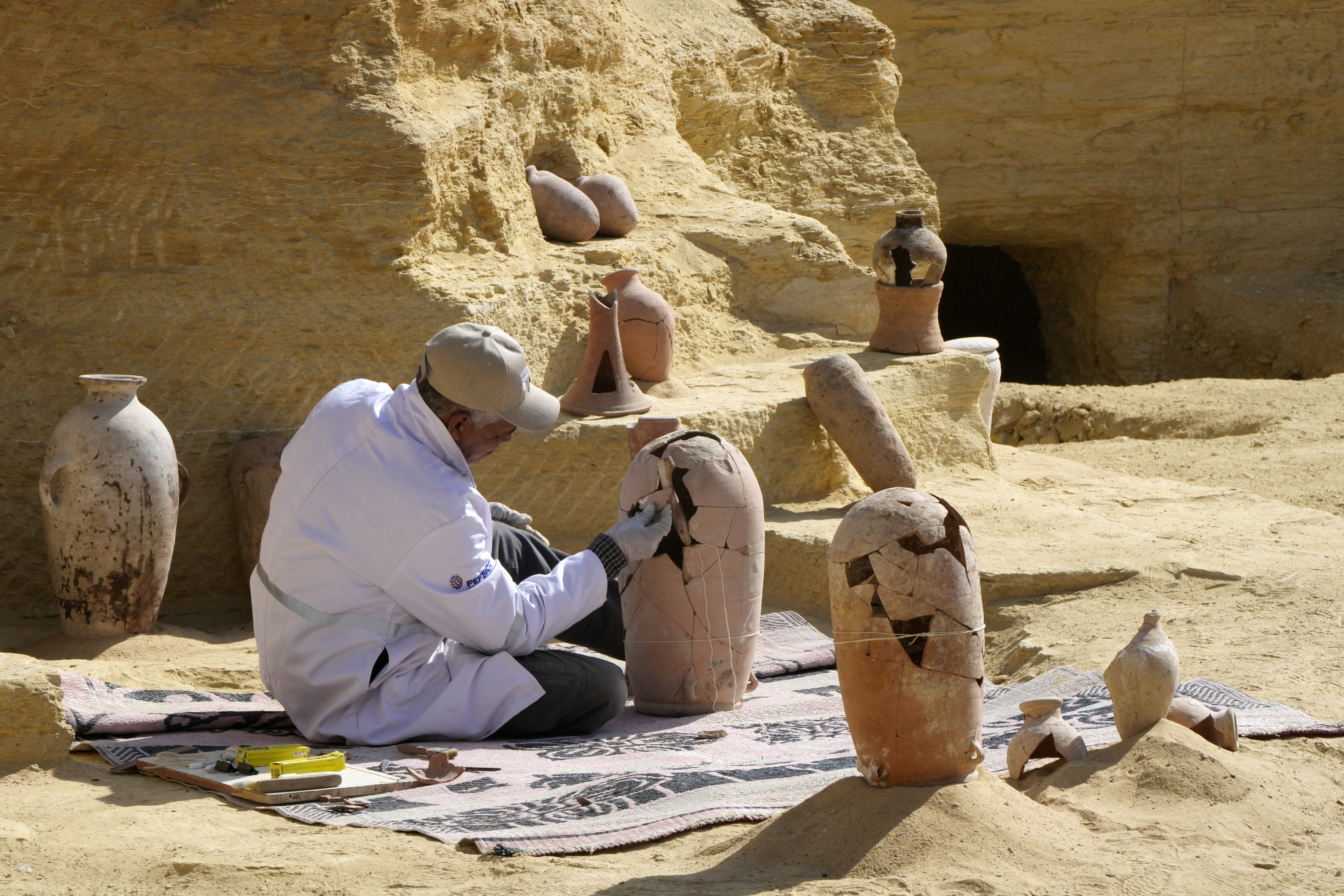
Archaeologists say they have discovered a mummy covered in gold leaf, sealed in a sarcophagus that has not been opened for 4,300 years.
The mummy, the remains of a man named Gekashepes, is believed to be one of the oldest and most complete non-royal bodies ever found in Egypt.
It was discovered in a 15-meter shaft of a necropolis south of Cairo, in Saqqara, where three more tombs were discovered. One grave belonged to a “secret keeper”.
It is said that the largest of the mummies discovered in the ancient necropolis belongs to a man named Khnumdzhedef – a priest, inspector and overseer of the nobility.
The other belonged to a man named Mary, who was a high-ranking palace official with the title of “keeper of secrets”, which allowed him to perform special religious rituals.
A judge and writer named Fetek is believed to rest in another tomb, where a collection of the largest statues ever found in the area was discovered.
Several other items were also found among the graves, including pottery.
Archaeologist Zahi Hawass, Egypt’s former antiquities minister, said all the finds date back to the 25th to 22nd centuries BC.

“This discovery is especially important because it links kings to the people living around them,” said Ali Abu Deshish, an archaeologist who participated in the excavation.
Saqqara has been a functioning burial site for over 3,000 years and has been designated a UNESCO World Heritage Site. It is located in the ancient capital of Egypt, Memphis, and is home to over 12 pyramids.
Thursday’s discovery comes just a day after experts in the southern Egyptian city of Luxor said they had discovered a fully inhabited Roman-era city dating from the second and third centuries AD.
Archaeologists have found dwellings, towers and what they called “metal workshops” containing pottery, tools and Roman coins.
Egypt has unearthed several important archaeological finds in recent years as part of efforts to revive the tourism industry.
The government hopes that the Grand Egyptian Museum, due to open this year after delays, will attract 30 million tourists a year by 2028.
However, critics accuse the Egyptian government of prioritizing findings that impress the media over serious academic research in order to attract more tourists.
Source: BBC
Source: Kathimerini
Ashley Bailey is a talented author and journalist known for her writing on trending topics. Currently working at 247 news reel, she brings readers fresh perspectives on current issues. With her well-researched and thought-provoking articles, she captures the zeitgeist and stays ahead of the latest trends. Ashley’s writing is a must-read for anyone interested in staying up-to-date with the latest developments.